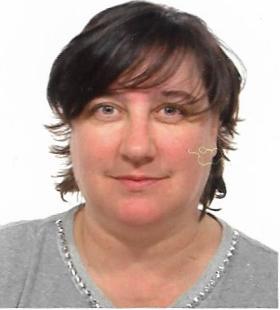Studying at the University of Verona
Here you can find information on the organisational aspects of the Programme, lecture timetables, learning activities and useful contact details for your time at the University, from enrolment to graduation.
Academic calendar
The academic calendar shows the deadlines and scheduled events that are relevant to students, teaching and technical-administrative staff of the University. Public holidays and University closures are also indicated. The academic year normally begins on 1 October each year and ends on 30 September of the following year.
Course calendar
The Academic Calendar sets out the degree programme lecture and exam timetables, as well as the relevant university closure dates..
| Period | From | To |
|---|---|---|
| INF BZ - 1° anno 1° sem | Oct 1, 2019 | Dec 20, 2019 |
| INF BZ - 2° anno 1° sem | Oct 1, 2019 | Dec 20, 2019 |
| INF BZ - 3° anno 1° sem | Oct 1, 2019 | Jan 31, 2020 |
| INF BZ - 1° anno 2° sem | Feb 3, 2020 | Apr 17, 2020 |
| INF BZ - 3° anno 2° sem | Apr 20, 2020 | Jun 8, 2020 |
| INF BZ - 2° anno 2° sem | Apr 20, 2020 | Jun 8, 2020 |
| Session | From | To |
|---|---|---|
| INF BZ - sessione invernale | Jan 7, 2020 | Feb 28, 2020 |
| INF BZ - sessione estiva | Jun 1, 2020 | Jul 31, 2020 |
| INF BZ - sessione autunnale | Sep 1, 2020 | Sep 30, 2020 |
| Session | From | To |
|---|---|---|
| 1^ SESSIONE | Oct 1, 2020 | Nov 30, 2020 |
| 2^ SESSIONE | Mar 1, 2021 | Apr 30, 2021 |
| Period | From | To |
|---|---|---|
| FESTIVITA' OGNISSANTI | Nov 1, 2019 | Nov 1, 2019 |
| FESTIVITA' IMMACOLATA CONCEZIONE | Dec 8, 2019 | Dec 8, 2019 |
| Vacanze di Natale | Dec 24, 2019 | Jan 6, 2020 |
| VACANZE DI PASQUA | Apr 10, 2020 | Apr 15, 2020 |
| FESTA DELLA LIBERAZIONE | Apr 25, 2020 | Apr 25, 2020 |
| FESTIVITA' DEL LAVORO | May 1, 2020 | May 1, 2020 |
| FESTA DELLA REPUBBLICA | Jun 2, 2020 | Jun 2, 2020 |
| Description | Period | From | To |
|---|---|---|---|
| INF BZ - tirocinio 3° anno 1^ esp | INF BZ - tirocinio 3° anno 1^ esp | Nov 17, 2019 | Dec 21, 2019 |
| INF BZ - tirocinio 2° anno 1^ esp | INF BZ - tirocinio 2° anno 1^ esp | Feb 3, 2020 | Mar 9, 2020 |
| INF BZ - tirocinio 3° anno 2^ esp | INF BZ - tirocinio 3° anno 2^ esp | Mar 2, 2020 | Apr 11, 2020 |
| INF BZ - tirocinio 2° anno 2^ esp | INF BZ - tirocinio 2° anno 2^ esp | Mar 16, 2020 | Apr 18, 2020 |
| INF BZ - tirocinio 1° anno 1^ esp | INF BZ - tirocinio 1° anno 1^ esp | Apr 20, 2020 | May 25, 2020 |
| INF BZ - tirocinio 1° anno 2^ esp | INF BZ - tirocinio 1° anno 2^ esp | Jun 1, 2020 | Jun 30, 2020 |
| INF BZ - tirocinio 3° anno 3^ esp | INF BZ - tirocinio 3° anno 3^ esp | Jul 6, 2020 | Aug 14, 2020 |
| INF BZ - tirocinio 2° anno 3^ esp | INF BZ - tirocinio 2° anno 3^ esp | Aug 11, 2020 | Sep 8, 2020 |
Exam calendar
Exam dates and rounds are managed by the relevant Medicine Teaching and Student Services Unit.
To view all the exam sessions available, please use the Exam dashboard on ESSE3.
If you forgot your login details or have problems logging in, please contact the relevant IT HelpDesk, or check the login details recovery web page.
Should you have any doubts or questions, please check the Enrollment FAQs
Academic staff

Bisoffi Zeno
 zeno.bisoffi@sacrocuore.it
zeno.bisoffi@sacrocuore.it
 +390456013326
+390456013326
 liliana.favari@univr.it
liliana.favari@univr.it
 sylvia.lintner@sabes.it
sylvia.lintner@sabes.it
 m.mussner@virgilio.it
m.mussner@virgilio.it
 nicola.pelizzari@univr.it
nicola.pelizzari@univr.it
 sara.pilotto@univr.it
sara.pilotto@univr.it
 0471067355
0471067355
 luisa.valer@claudiana.bz.it
luisa.valer@claudiana.bz.it
Study Plan
The Study Plan includes all modules, teaching and learning activities that each student will need to undertake during their time at the University.
Please select your Study Plan based on your enrollment year.
1° Year
| Modules | Credits | TAF | SSD |
|---|
Professional Laboratories (1st year)
2° Year activated in the A.Y. 2020/2021
| Modules | Credits | TAF | SSD |
|---|
Professional Laboratories (2nd year)
3° Year activated in the A.Y. 2021/2022
| Modules | Credits | TAF | SSD |
|---|
Professional Laboratories (3rd year)
| Modules | Credits | TAF | SSD |
|---|
Professional Laboratories (1st year)
| Modules | Credits | TAF | SSD |
|---|
Professional Laboratories (2nd year)
| Modules | Credits | TAF | SSD |
|---|
Professional Laboratories (3rd year)
Legend | Type of training activity (TTA)
TAF (Type of Educational Activity) All courses and activities are classified into different types of educational activities, indicated by a letter.
Evidence based nursing (2021/2022)
The teaching is organized as follows:
Learning outcomes
This course aims to develop students’ critical appraisal skills, with a particular emphasis on research articles and guidelines in the nursing literature. STATISTICS The aim of the course "Health statistics and clinical epidemiology" is to provide the theoretical and practical tools for assessing the frequency of diseases in human populations and the associated risk factors. The course therefore aims to provide expertise in epidemiology and bio-statistics. At the end of the course, the student must demonstrate to have understood the basic bio-statistical methods applied to epidemiology and the elements of an epidemiological study. EVIDENCE BASED NURSING This course provides an introduction to Evidence Based Practice principles, with a particolar emphasis on critical appraisal or assessement of research evidence in the health sciences literature. The development of critical appraisal skills is important for informing clinical practice. Students will learn important research skills such as how to define an answerable clinical research question, how to efficiently search for evidence on the most important databases, and develop the skills necessary to critically appraise or assess the validity and the generalizalibilty of a research article or a clinical practice guideline.
Program
------------------------
MM: METODOLOGIA DELL'INFERMIERISTICA BASATA SULLE EVIDENZE
------------------------
• The model and the elements of EBP process • Formulating an Answerable Question using the ‘P I C O’ principle • Searching evidence in scientific databases (eg. PubMed) to identify and to propose solutions/ innovations to clinical • Understanding results from quantitative evidence: RCT’s, cross.-sectional and observational studies, systematic reviews and meta-analysis • Understanding results from qualitative studies • Understanding the Clinical Practice Guidelines and their relevance in the nursing practice • Integrating clinical judgment, patient preferences and other available resources as a basis for clinical decision-making • The Evidence Hierarchy: definitions and examples
------------------------
MM: STATISTICA SANITARIA E EPIDEMIOLOGIA CLINICA
------------------------
The course is structured in theoretical frontal lessons (24h). The teaching material is made available to the students on the e-learning web page of the course (Moodle platform). Collection and organization of biomedical data: - stages of a statistical research; - population, sample and statistical units; - measurement process and measurement scales; - validity, accuracy and precision of a measuring instrument; - absolute, relative and cumulative frequencies; - one and two-way frequency tables. Graphical representation of biomedical data: - pie chart; - bar chart; - histogram; - cumulative frequency polygon. Measures of location and dispersion: - mode; - percentiles and median; - simple and weighted arithmetic mean; - range; - interquartile range; - deviance, variance and standard deviation. An introduction to probability theory: - definition of probability; - axiomatic theory of probabilities; - rules of probability calculation; - independent and conditional probabilities; - Bernoulli and Gauss distributions. Diagnostic and screening tests: - sensitivity and specificity. The objects of epidemiology: - outcome; - measures of disease frequency (prevalence, cumulative incidence, incidence rate); - determinant. The occurrence relationship: - measures of absolute effect (attributable risk); - measures of relative effect (relative risk, odds ratio). The epidemiological studies: - ecological study; - cross-sectional study; - case-control study; - cohort study; - clinical trial. An introduction to statistical inference: - point estimate; - confidence interval; - statistical test.
Bibliography
Examination Methods
The final test consists of 2 written exams, one for each unit. To pass the final test, the student must get a score of not less than 18/30 in each exam. The final mark (in thirtieths) is the average of the 2 scores.
------------------------
MM: METODOLOGIA DELL'INFERMIERISTICA BASATA SULLE EVIDENZE
------------------------
Written exam in presence composed by different kind of questions such as open and close question to test: • evidence based nursing knowledge • critical thinking skills Appraising a research article using open questions The remote exam is however guaranteed for all students who request it in the academic year 2020/2021.
------------------------
MM: STATISTICA SANITARIA E EPIDEMIOLOGIA CLINICA
------------------------
The final test is a written exam with short answer questions and multiple choice questions. The aim of the test is to verify the knowledge of all the topics discussed. The final evaluation is expressed in thirtieths.
Career prospects
Module/Programme news
News for students
There you will find information, resources and services useful during your time at the University (Student’s exam record, your study plan on ESSE3, Distance Learning courses, university email account, office forms, administrative procedures, etc.). You can log into MyUnivr with your GIA login details: only in this way will you be able to receive notification of all the notices from your teachers and your secretariat via email and soon also via the Univr app.
Gestione carriere
Orario lezioni
COMUNICAZIONE DEL PRESIDENTE DEL COLLEGIO DIDATTICO
Carissime Studentesse,
Carissimi Studenti,
di seguito un promemoria relativo alle modalità di erogazione della didattica per il corso di studio in Infermieristica A.A. 2022/2023.
In ottemperanza alle linee guida della Commissione didattica di Ateneo, che prevedono una didattica improntata ad un pieno recupero delle modalità regolari di erogazione in presenza, la Commissione didattica del CdL nella seduta del 29 settembre 2022, ha deliberato il pieno ritorno all’utilizzo della didattica frontale in presenza.
Solo nei casi di comprovata positività al COVID-19, e/o in situazioni di particolare fragilità (sempre correlate alla pandemia) sarà previsto il collegamento sincrono in modalità streaming; a tal proposito ogni Docente, sulla propria pagina web, darà chiare indicazioni sulla modalità di fruizione della didattica.
La modalità asincrona (registrazioni delle lezioni) non è prevista.
Nell’augurarvi un buon Anno Accademico, vi saluto cordialmente
Prof. Paolo F Fabene
Guida ai programmi degli insegnamenti
Guida ai programmi degli insegnamenti
Documents
| Title | Info File |
|---|---|
|
|
pdf, it, 1594 KB, 12/12/22 |
|
|
pdf, it, 1310 KB, 02/09/21 |
Linee guida per riconoscimento cfu
Lo studente che intende chiedere il riconoscimento di moduli o insegnamenti pregressi dovrà presentare domanda, entro il 30 novembre dell’anno accademico in corso, seguendo le indicazioni indicate al link seguente: https://www.univr.it/it/i-nostri-servizi/segreterie-studenti/gestione-carriere-studenti-medicina-e-chirurgia/riconoscimento-crediti-acquisiti-da-una-carriera-pregressa-medicina
Documents
| Title | Info File |
|---|---|
|
|
pdf, it, 295 KB, 09/11/21 |
Student login and resources
Attività didattiche regime part-time
Modalità di richiesta
La domanda di iscrizione part-time può essere presentata all'inizio di ogni anno accademico e comunque entro il 30 novembre di ogni anno. Entro lo stesso termine, se necessario, lo studente potrà richiedere di tornare al regime full-time. Al link seguente la pagina del servizio https://www.univr.it/it/i-nostri-servizi/segreterie-studenti/flessibilita-nella-frequenza-dei-corsi/possibilita-di-iscrizione-part-time-e-ripristino-full-time
Una volta inviata la domanda, lo studente concorda in via preventiva con il Coordinatore della didattica professionale (CDP), il piano di studi che intende perseguire nel periodo di part-time compilando il modulo in allegato
Documents
| Title | Info File |
|---|---|
|
|
octet-stream, it, 1309 KB, 21/10/22 |
Graduation
Documents
| Title | Info File |
|---|---|
|
|
pdf, it, 242 KB, 19/01/24 |
|
|
pdf, it, 80 KB, 06/04/24 |
|
|
pdf, it, 43 KB, 06/04/24 |
|
|
pdf, it, 44 KB, 09/04/24 |
|
|
pdf, it, 148 KB, 06/04/24 |
|
|
pdf, it, 108 KB, 06/04/24 |
|
|
pdf, it, 115 KB, 06/04/24 |
|
|
pdf, it, 1487 KB, 18/02/22 |
|
|
pdf, it, 437 KB, 22/03/24 |
|
|
pdf, it, 957 KB, 22/03/24 |
|
|
pdf, it, 424 KB, 19/01/24 |











